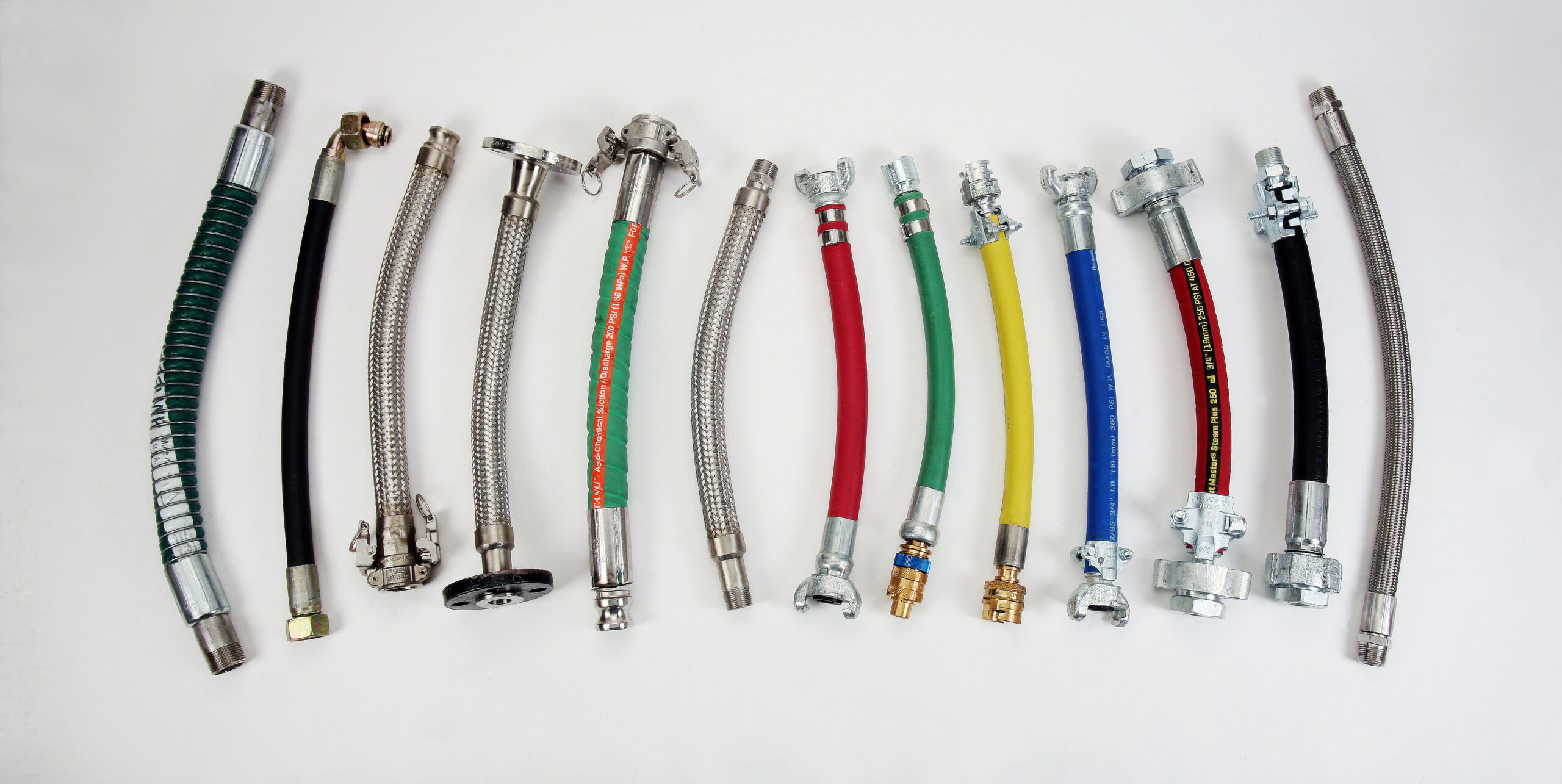Choosing the Right Industrial Hose for Your Applications

There are numerous applications for hoses in various settings and environments. Because there are so many different types of hoses to choose from, selecting the right one for the right applications and to meet specific requirements is crucial to the success of your operation. There are four basic types of hoses, each with unique offerings designed for your specific needs: metal, rubber industrial, composite, and fluoropolymer. Knowing how and where each hose performs best will ensure you choose the right one to keep your projects running as smoothly and efficiently as possible.
Basic Types of Industrial Hoses
There are several application factors to consider when choosing the right industrial hose. Metal hoses are typically the best choice when working with applications involving caustic liquid, dry, and vapor materials. Due to their higher durability, higher pressure rating, and extreme temperature ratings, they perform best in refineries, petroleum, trucking, steel wastewater, paper, food processing, barge loading, and similar industries. Metal hoses offer better chemical resistance than other hoses and are extremely customizable. They are available in single or double braided stainless, Monel, or Hastelloy construction. Examples of applications include chemical, solvents, wastewater, chlorine, and more.
Rubber industrial hoses are best for those applications requiring lower temperatures, mild chemical resistance, and lower pressure ratings such as steam, water, air, nitrogen, material handling, food grade, and plastic. In addition, rubber industrial hoses offer increased flexibility, quicker turnaround times, longer lengths, and nominal pipe sizes.
Due to its superior flexibility, composite hoses are great in applications such as loading facilities, tank farms, and vapor recovery. They are constructed of a series of inner/outer wires and polypropylene films which makes them lighter than metal and rubber hoses, making them easier to handle. They have good chemical resistance and great flexibility.
The last basic hose is fluoropolymer. The various fluoropolymer options include rubber covered, stainless, and polypropylene braided PTFE or FEP-lined. Fluoropolymer hoses are best used in highly corrosive environments, when higher temperatures are needed, and where cleanliness is a factor. Because it’s considered a clean way of transfer, fluoropolymer is ideal for use in food and pharmaceutical plants.
The Lamons Difference
As with all our products, Lamons aims to exceed industry expectations, and the hose industry is no different. We provide various unique offerings to give you the best possible product experience.
Lamons produces metal hoses in four different locations: Midland, Michigan, Baton Rouge, Louisiana, Rancho Dominguez, California, and of course our Matrix facility in Houston, Texas. Unlike some of our competitors, our equipment allows us to produce hoses up to 14” in diameter with lead times between 3-5 days to weld, be tested, and certified. We offer hoses made with 321, 316, and 304 stainless steel. Lamons is also able to produce some exotics such as Monel, Inconel, and Hastelloy metals that are also corrosion resistant. All our welders are certified in metal hose welding, and every hose welded is hydrostatically tested and certified.
Our rubber industrial hose assemblies are also produced at all four of our locations. This gives us the capability to service all of Texas, Louisiana, the West Coast, and the Midwest. Lamons is able to provide color coating on utility hoses and tagging to include specific information like the date it was tested, pressure it was tested to, serial number, and other information that a customer may request.
Your One-Stop Shop
Being a manufacturer of bolts, gaskets, and hoses allows Lamons to be your one-stop shop. Unlike other hose distributors who only distribute hoses, we can provide all three products with the same exceptional customer service and product expertise under one roof. Our wide range of hose offerings and customizable options are sure to fit your specific manufacturing needs.



